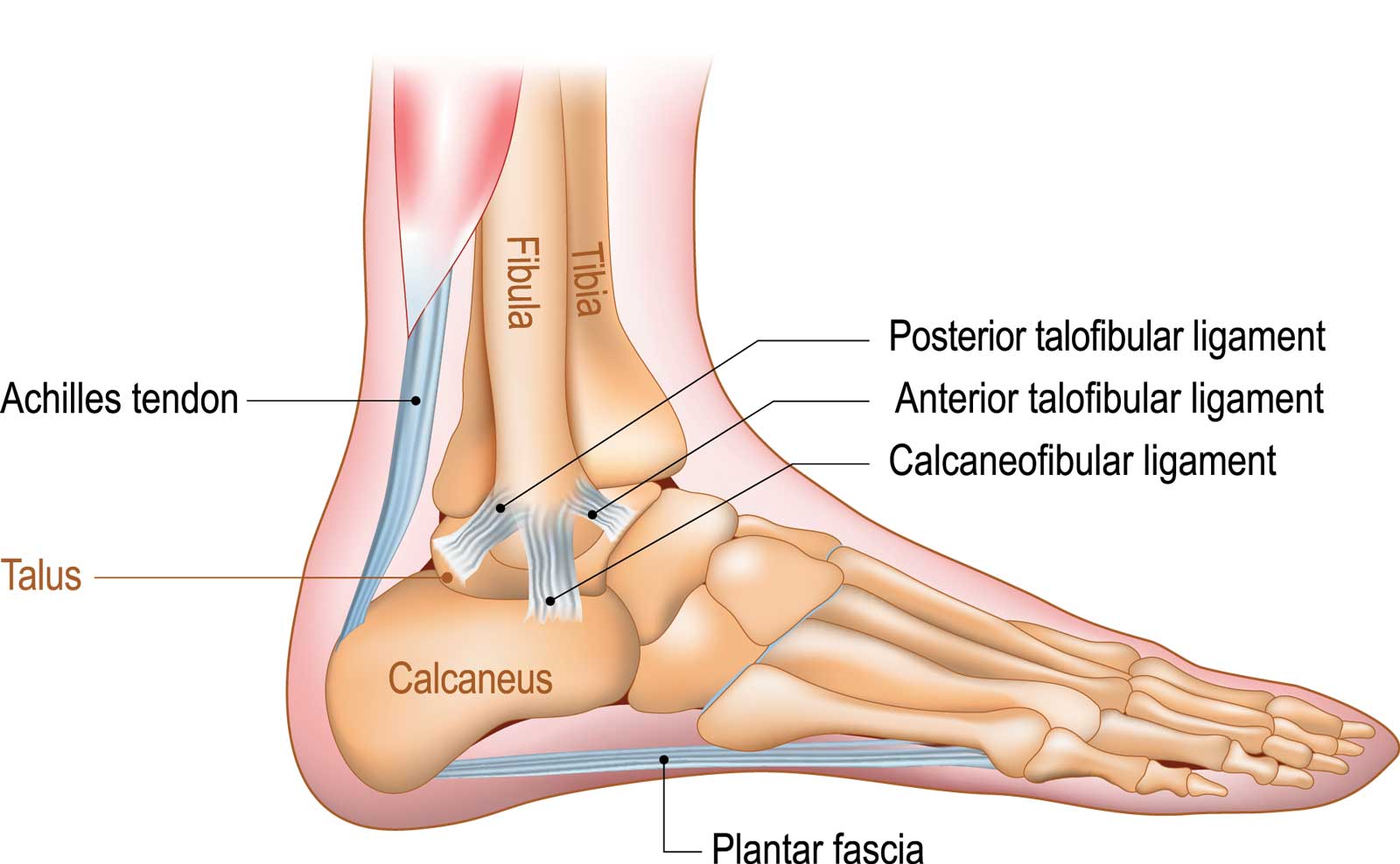What is Achilles Tendon Pain?
Achilles tendon pain is a common condition that affects the large tendon connecting your calf muscles to your heel bone. This pain can range from mild discomfort to severe, debilitating pain that interferes with daily activities. While often associated with athletic activities, Achilles tendon pain can affect anyone, regardless of their activity level. Understanding the causes, symptoms, and treatment options for this condition is crucial for maintaining ankle health and overall mobility.
The Achilles tendon, also known as the calcaneal tendon, is the strongest and largest tendon in the human body. It connects the gastrocnemius and soleus muscles (calf muscles) to the calcaneus (heel bone). This tendon plays a vital role in walking, running, and jumping by enabling you to raise your heel off the ground. Despite its strength, the Achilles tendon is susceptible to injury and inflammation due to its limited blood supply and the high tensions placed on it during physical activities.

Common Causes of Achilles Tendon Pain
One of the most common causes of Achilles tendon pain is Achilles tendinitis, an overuse injury that leads to inflammation of the tendon. This often occurs in runners who have suddenly increased their running distance or intensity. Another cause is Achilles tendinosis, a degenerative condition of the tendon resulting from repetitive stress over time.
Other factors contributing to Achilles tendon pain include sudden increases in physical activity, improper footwear, tight calf muscles, obesity, and certain medical conditions like rheumatoid arthritis or gout. Age can also play a role, as the Achilles tendon naturally loses flexibility and becomes more prone to injury as we get older. In some cases, structural foot problems such as flat feet or high arches can put additional stress on the Achilles tendon, leading to pain.
Achilles Tendon Pain Symptoms
The symptoms of Achilles tendon pain can vary depending on the underlying cause and severity of the condition, but individuals typically experience pain and stiffness along the tendon, particularly in the morning or after periods of inactivity. This pain often improves with mild activity as the tendon warms up, but may worsen with prolonged or intense physical activity.
In cases of Achilles tendinitis, you might feel pain, swelling, and warmth in the back of the ankle. The pain typically intensifies when you try to lift your heel off the ground while standing or if you stretch the tendon. In more severe cases or with tendinosis, you might feel a constant ache or burning sensation in the back of you heel or lower calf, even when at rest.
If pain appears suddenly, or if the pain is severe, this could indicate a more serious condition, such as an Achilles tendon rupture, which requires immediate medical attention, as this will not heal on its own.
When you visit our clinic, our foot and ankle specialists will conduct a thorough physical evaluation of your pain. If needed, imaging diagnostics like an MRI, X-ray, or Ultrasound may be used to accurately diagnose the issue.
Treatment Options
Treatment for Achilles tendon pain typically begins with conservative measures aimed at reducing pain and inflammation while promoting healing. The specific treatment plan will depend on the underlying cause and severity of your condition, but may include several of the following approaches:
- Rest and activity modification are often the first steps in treatment. This doesn't necessarily mean complete inactivity, but rather avoiding activities that exacerbate your pain.
- Ice therapy can be helpful in reducing pain and inflammation, especially after activity.
- Non-steroidal anti-inflammatory drugs (NSAIDs) may be recommended to help manage pain and reduce inflammation.
- Physical therapy plays a crucial role in treating Achilles tendon pain. A customized program of stretching and strengthening exercises can help improve flexibility, strengthen the calf muscles, and promote proper healing of the tendon.
- Orthotic devices or supportive footwear may be recommended to help reduce stress on the Achilles tendon. This can include heel lifts or custom orthotics designed to correct any biomechanical issues contributing to your pain.
In cases where conservative treatments aren't providing adequate relief, more advanced interventions may be considered. These could include extracorporeal shockwave therapy (ESWT), which uses sound waves to stimulate healing in the tendon, or platelet-rich plasma (PRP) injections, which involve injecting a concentration of your own platelets to promote tissue repair.
Surgery is rarely needed for Achilles tendon pain, unless the pain is related to a complete rupture or tear.
Preventing Achilles Tendon Pain
While not all cases of Achilles tendon pain can be prevented, several strategies can help reduce your risk. Regular stretching and strengthening exercises for the calf muscles can help maintain flexibility and strength in the Achilles tendon. Wearing appropriate, supportive footwear for your activities and replacing athletic shoes regularly can also help reduce stress on the tendon.
It is also important to know your limits. If your job requires you to be at a computer for most of the day, be cautious when beginning a new athletic activity, such as pickleball or running. Gradually increasing the intensity and duration of your physical activities, rather than making sudden changes, can help prevent overuse injuries.
Expert Care for Achilles Tendon Pain
If you're experiencing persistent pain in your Achilles tendon that doesn't improve with rest and home care, it's important to seek professional evaluation. Additionally, any sudden, severe pain in the back of your ankle or calf, especially if accompanied by a popping sound, could indicate a more serious injury like a tendon rupture and requires immediate medical attention.
At our clinic, we specialize in the diagnosis and treatment of Achilles tendon pain and other foot and ankle conditions. Our team of experienced orthopedic specialists is committed to providing comprehensive, personalized care to help you overcome Achilles tendon pain and return to your desired activities.
If you're struggling with Achilles tendon pain or any other foot and ankle issues, please contact us today to schedule a consultation.
